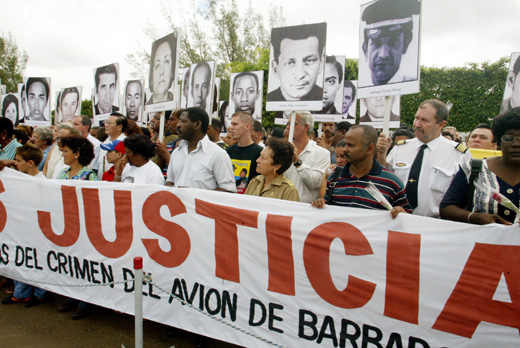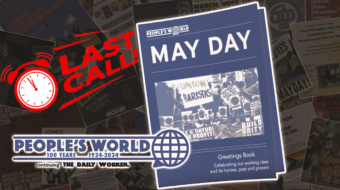
This time of year brings many memories. The memories are like echoes, for they coincide so closely with events of today, equally tragic and bloody.
On October 2, 1968, members of the Presidential Guard of the Mexican president, Gustavo Diaz Ordaz, fired on young people and their families, who were peacefully demonstrating for democracy and justice in Tlatelolco Plaza, in Mexico City.
At least 300 people died, and more in other areas of the country, while the offices of the Mexican Communist Party and other leftist groups were ransacked and the leaders arrested. Later evidence showed that the U.S. Central Intelligence Agency was up to its neck in this atrocity from the outset.
Fast forward to Sept. 26, 2014: Local “security” forces in close alliance with the “Guerreros Unidos” drug trafficking gang attacked three busloads of young students of a teacher training college in the small city of Iguala, in Mexico’s Guerrero state. Six people were killed on the spot and 43 have disappeared and most likely have been murdered. Questions are being asked about the role of the U.S. funded Merida initiative in this incident.
On October 9, 1967, the Argentine-Cuban revolutionary Ernesto “Che” Guevara was shot without trial in the village of Higueras, near the Ñancahuazú valley where Che and his Bolivian and Cuban comrades had been trying to get a guerrilla operation going against the military dictatorship of General René Barrientos. Che was captured alive but Barrientos, who was closely advised at every step by the C.I.A., gave the order to kill him without trial. Sergeant Mario Teran did the dirty work: When he entered the room where Che was being held, Che said simply, “Shoot, coward, you are only going to kill a man.”
I recall that a decade or so later the Bolivian government issued a commemorative stamp honoring the “Battle of Ñancahauzú”, which enraged Bolivian exiles worldwide.
On October 6, 1976, Cuban exile terrorists based in the U.S. and Venezuela (pre Chavez) set off two bombs in a Cuban civilian airliner, Cuba de Aviación Flight 455, killing all 78 passengers and crew on board. The C.I.A. was fully cognizant in advance of the plans for the attack. The main planners, Orlando Bosch and Luis Posada Carriles, were never held to account. Bosch died in Miami in 2011 and Posada now lives freely in Miami, where he is lionized as a hero by the right wing.
On Oct. 1 of this year, men entered the home of the youngest member of Venezuela’s national legislature, Robert Serra, and stabbed him and his compañera to death with sadistic frenzy. Serra had been playing a leading and vocal role in denouncing ties between the Venezuelan ultra-right and fascists and drug cartel members in neighboring Colombia. Some of the right wing activists have been funded by U.S. taxpayer dollars.
The economic, political and military elites in Latin America have killed and killed, and keep on killing. And the U.S. government continues to be complicit in various ways. But the revolutionary idea cannot be killed, any more than the people can.
The Bolivian noncom who killed Che Guevara, Mario Teran, later was going blind from cataracts while living in exile in Paraguay. It was his good fortune, and an immense irony of history, that there happened to be a Cuban medical team available who was helping people with their eye ailments. They operated on ex-sergeant Teran and restored his eyesight.
The Cuban Communist Party newspaper “Granma” mused:
“Four decades after Mario Teran attempted to destroy a dream and an idea, Che returns to win yet another battle. Now an old man, he [Teran] can once again appreciate the colors of the sky and the forest, enjoy the smiles of his grandchildren and watch football games.”
Thus will the future pay homage to all our revolutionary martyrs.
Photo: Relatives hold signs and pictures of victims at the Colon Cemetery in Havana, at a ceremony in memory of the Cubana Airlines bombing of 1976. Cubans marking the anniversary expressed frustration and sadness at the fact that Luis Posada Carriles has yet to be punished for his involvement in masterminding the crime. Jorge Rey/AP












Comments